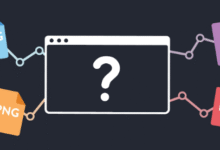Unlocking the World of adsy.pw/r: A Complete Guide

Introduction to adsy.pw/r
When you stumble upon a link like adsy.pw/r, your first instinct is probably to wonder what it means and where it leads. At first glance, it might look like a random short URL, but it’s connected to a broader world of link shorteners, online monetisation, and ad-driven platforms. The digital space is flooded with links that are shortened for convenience, but many of them come with specific purposes — from tracking user behaviour to generating revenue. Adsy.pw/r is one of those intriguing links that falls into this category.
In simple terms, adsy.pw/r is a link that is part of a redirection system often used for advertising and affiliate marketing. Instead of sending you directly to a website, it passes you through a “gateway” page where ads, pop-ups, or promotional material can be displayed. This system allows publishers and marketers to earn money whenever someone clicks on or views those ads. For end users, the experience might feel like a quick detour before reaching the intended content, but for advertisers, it’s a goldmine of opportunity.
Understanding adsy.pw/r also sheds light on the business model behind shortened links. Unlike traditional URL shorteners such as Bitly or TinyURL, adsy.pw/r is often tied to monetisation strategies. That means the more clicks a link gets, the more revenue is generated for the person sharing it. This is why you’ll often see such links shared across forums, file-sharing sites, or even social media groups where free content is being offered in exchange for users tolerating a few seconds of ads.
The Mechanics Behind adsy.pw/r
To fully appreciate what adsy.pw/r is, you need to understand the mechanism behind it. When you click on this type of link, you aren’t instantly transported to the destination website. Instead, you’re routed through a redirection service that acts as a checkpoint. During this checkpoint, several events can occur: ads may be displayed, user activity is logged, or the link owner receives credit for generating traffic.
From a technical perspective, the process is simple yet powerful. The “pw” domain extension belongs to Palau, but many companies and services buy it for creative branding or anonymity. The “/r” part usually stands for “redirect” or “route,” signalling that the link is meant to bounce you elsewhere. Behind the curtain, the redirection service inserts an ad layer or monetisation script. This is where the business model kicks in — advertisers pay to show you their products or services, and the link owner earns revenue for every view or click.
Users often complain that these links are slightly annoying because they act like speed bumps, but in reality, they’re a core part of how the internet economy thrives. Without these ad-driven models, many free resources, downloads, and services wouldn’t exist. The people who provide those resources often rely on monetised link shorteners like adsy.pw/r to make their work sustainable. So, while the user might see it as an extra click, the content creator sees it as a vital income stream.
Another fascinating detail is the way these links are tracked. Each time you click, data such as your device type, browser, location, and even browsing behaviour might be logged. This isn’t inherently malicious; it’s simply how advertisers refine their targeting. Instead of blasting ads to random people, they can serve promotions to users most likely to be interested. In short, adsy.pw/r acts as a middleman, connecting content consumers with advertisers in a way that benefits all three parties: the user (free content), the creator (revenue), and the advertiser (exposure).
Why adsy.pw/r Matters in Digital Marketing
The significance of adsy.pw/r goes beyond being just another redirect link. It represents an entire ecosystem of online advertising that keeps the internet’s free content economy alive. Without monetisation platforms like this, many websites, file-sharing services, and even influencers would struggle to sustain their work.
For marketers, links like adsy.pw/r offer a unique opportunity. Instead of spending vast amounts of money on traditional advertising, they can piggyback on traffic that’s already flowing across the web. For instance, someone sharing a popular free ebook or a software download can wrap the link in adsy.pw/r and generate income every time someone clicks it. Marketers can insert their promotional content within this system, ensuring they reach a broad audience without investing in direct traffic acquisition.
The psychology behind why people tolerate adsy.pw/r is also essential. Internet users have grown accustomed to brief interruptions, whether in the form of YouTube ads, banner pop-ups, or social media sponsored posts. Because the detour is usually just a few seconds long, most users don’t abandon the process — they wait it out. This patience is what makes the model effective. Even if only a small percentage of people interact with the ads, the cumulative numbers can generate significant revenue for marketers.
Moreover, adsy.pw/r is an example of how shortened links serve dual purposes: convenience and monetisation. On one hand, a shorter link is easier to share, remember, or fit into character-limited platforms like Twitter. On the other hand, it becomes a clever vehicle for ads. This duality is exactly why services like this have exploded in popularity. Whether you’re a casual content sharer or a digital marketing expert, you’ve likely interacted with such systems without even realising it.
Benefits and Drawbacks of Using Adsy.pw/r
Like most tools in the digital space, adsy.pw/r has its strengths and weaknesses. Understanding both sides is crucial, especially if you’re considering using it to monetise your links or if you simply want to be a more informed internet user.
On the benefits side, the most obvious perk is monetisation. If you’re someone who frequently shares valuable content, you might want to check out Adsy.pw/r gives you a chance to turn those clicks into cash. This can be particularly useful for small creators, students, or side-hustlers who want to earn passive income. It’s also a low-barrier entry point into digital marketing — you don’t need a fancy website or expensive tools; you just need traffic and engaging content.
Another benefit is traffic analytics. Many ad-driven shorteners, including adsy.pw/r, provide data on who’s clicking your links. This helps creators and marketers understand their audience better. Insights such as geographic location, device usage, and click times can help optimise future campaigns. In many ways, these platforms act like lightweight versions of Google Analytics, making them especially appealing to beginners.
Of course, there are drawbacks. The most common complaint is the user experience. Nobody enjoys being redirected through multiple pages or bombarded with ads. Some users may abandon the process altogether, leading to lost engagement. There’s also the issue of trust. Because adsy.pw/r and similar links look unfamiliar, some users may hesitate to click, fearing scams or malware. While not inherently unsafe, these links do create an air of scepticism that can be hard to overcome.
Finally, there’s the challenge of ad blockers. A growing number of internet users install ad-blocking software, which can disrupt the entire monetisation process. If the ads don’t load, the revenue doesn’t flow. This makes adsy. Password reset links are less effective for particularly tech-savvy audiences. Despite these drawbacks, the model remains widely used because the benefits, especially for creators, often outweigh the inconveniences.
The Role of adsy.pw/r in the Future of Online Advertising
The digital World evolves rapidly, and tools like adsy.pw/r are part of a larger shift toward creative advertising models. As traditional banner ads lose effectiveness, marketers are exploring ways to integrate promotions into the natural flow of online interactions. Adsy.pw/r represents one of these shifts — a system where advertising is seamlessly tied into something people already do: clicking links.
Looking ahead, we can expect these systems to become more sophisticated. Instead of generic ads, users may start seeing hyper-personalised promotions that align with their interests. Imagine clicking on a link for a music download and being shown an ad for concert tickets in your city. This level of targeting not only makes ads less intrusive but also increases their effectiveness. For marketers, it’s the holy grail of advertising.
Another possible evolution is the integration of cryptocurrency payments. Some link shorteners are already experimenting with blockchain to pay creators in Bitcoin or other digital currencies. This makes the system more appealing to global audiences, especially in regions where traditional payment methods are limited. If adsy.pw/r adopts such features, it could become a powerful player in the decentralised digital economy.
However, the future also holds challenges. With increasing scrutiny on online privacy and data collection, platforms like adsy.pw/r may need to adjust their practices to comply with stricter regulations. Transparency about what data is collected and how it’s used will become essential. Still, as long as people crave free content and creators need ways to fund it, monetised shorteners like adsy.pw/r will remain a cornerstone of the digital advertising ecosystem.
FAQs About adsy.pw/r
1. Is adsy.pw/r safe to use?
Yes, in most cases, adsy.pw/r is safe. However, like any ad-driven redirect link, it may display promotional content that feels spammy. Always have an updated antivirus and avoid downloading suspicious files.
2. How do people earn money through adsy.pw/r?
Creators share shortened links using adsy.pw/r. When people click those links, they pass through ads. Advertisers pay for those impressions or clicks, and part of that revenue goes to the creator.
3. Why do some users dislike adsy?pw/r links?
The main issue is inconvenience. Instead of being taken directly to the desired content, users are forced to sit through ads. Some also worry about security risks, even though most of these links are harmless.
4. Can adsy.pw/r links be blocked?
Yes, ad blockers and browser extensions can sometimes block or bypass adsy.pw/r links. However, this also means the creator loses potential earnings from those clicks.
5. Will adsy.Will pw/r become more popular in the future?
Most likely, yes. As online advertising continues to evolve, systems like adsy.pw/r will adapt and expand. With better targeting and potential blockchain integration, their role in digital marketing could grow even stronger.





